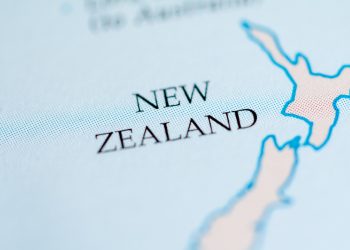Rules place limits on compensation, general average may hit customers
Shippers without specific safeguards in bills of lading who lose cargo from the stranded container ship Rena off the coast of New Zealand may see strict limits on their compensation as the complicated international rules of cargo liability take hold, according to a maritime attorney in Washington.

Ashley Craig, a partner with the Venable firm, said international maritime conventions dictate shippers from most countries outside the United States will have compensation limited by conventions in place for containers lost in New Zealand’s Bay of Plenty unless the shippers elected to increase the liability levels. Compensation for cargo originating from the U.S. tops out at $500 per container, depending on the type of cargo, the weight and other factors unless separate provisions are made in the bill of lading, said Craig.
Compensation, he said, is based on the freight unit under the bill of lading and so may not be based on entire containers.
Shippers with goods on the vessel also may face the potential for a deeper financial hit from the Rena disaster under the maritime legal principle known as general average. Under the internationally recognized principle, all shippers with goods on a ship share in the cost of containers lost when boxes are thrown overboard to stabilize a vessel during a storm or natural accident. It’s unclear, so far, however, whether general average can be invoked here since it appears the containers fell into the sea and were not intentionally thrown overboard.
According to local reports, more than 80 containers have fallen from the vessel since it hit a reef near New Zealand Oct. 5, leaving the Rena damaged and leaning precariously on the reef.
It’s common for shippers to push back against the application of the law if they believe the accident wasn’t caused by nature but human error, Craig said. Authorities are investigating the Oct. 5 accident involving the ship chartered by Costamare to Mediterranean Shipping.
The ship’s captain was charged with operating a vessel in a manner causing unnecessary danger or risk and was released on bail on Oct. 12 at Tauranga District Court.
Crews in New Zealand, meanwhile, were racing to pump oil from the vessel this week as a new storm threatening to break the ship apart and make worse what already amounts to New Zealand’s worst environmental disaster. MSC has pledged to contribute to the cost of the massive cleanup effort.
Source: The Journal of Commerce




























































